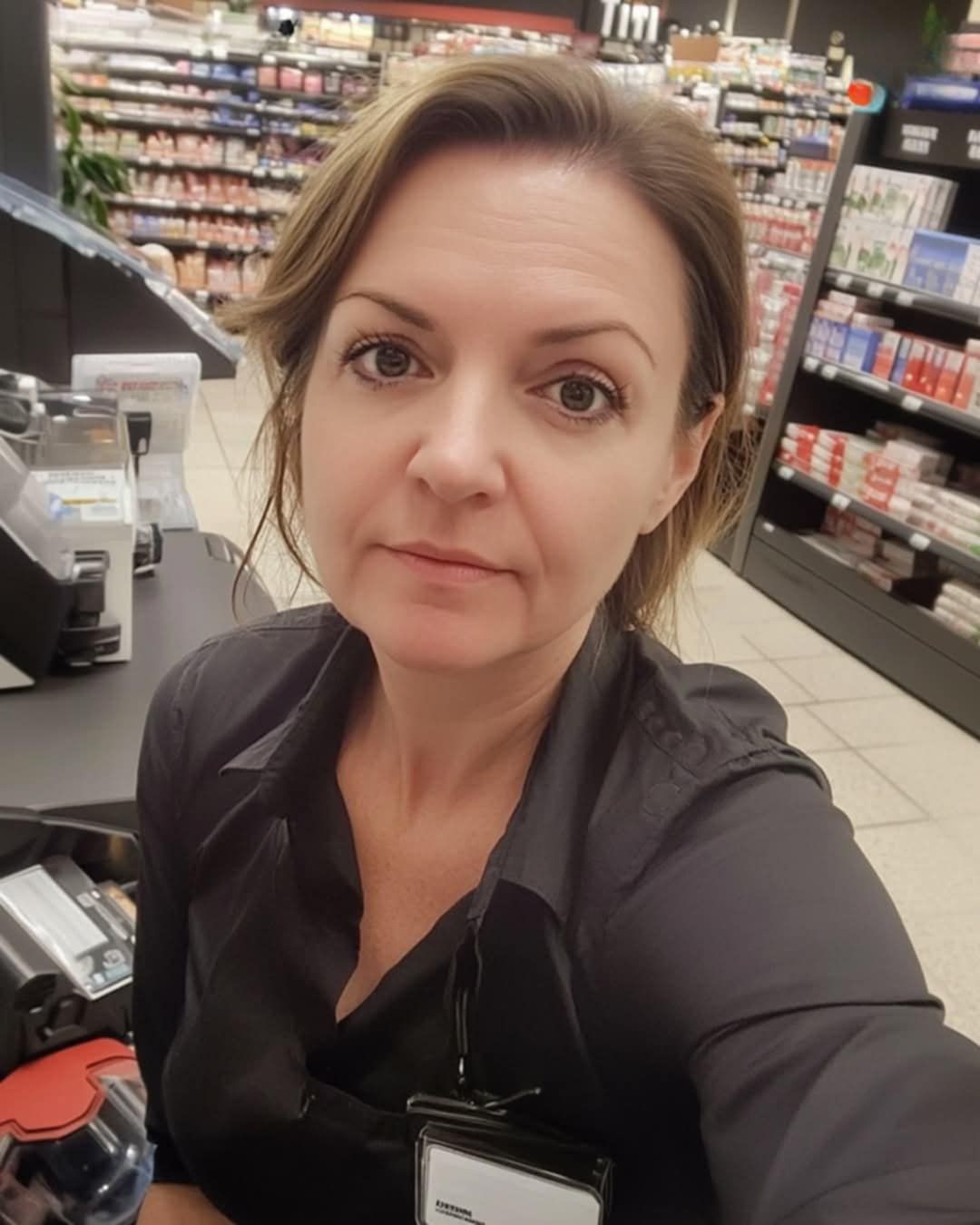
It was a quiet, gray afternoon at Patel’s Market—the kind of small neighborhood store where everyone knew each other’s names. Mr. Patel, a kind man in his 60s, was stocking cans behind the register when he noticed movement in the snack aisle. A small girl was wandering there, glancing nervously at the entrance.
She looked about seven years old. Her hoodie was stained and two sizes too big, her shoes worn thin. She didn’t touch anything for a while—just stood still, watching. But then, with stiff fingers, she slid a granola bar into the sleeve of her oversized sweatshirt. Then another.
Mr. Patel sighed quietly, stepping out from behind the counter. He’d dealt with shoplifters before, but something about this girl’s eyes—wide, glassy, and scared—gave him pause. He gently blocked the door before she could leave.
“Sweetheart,” he said softly, “why don’t we talk for a moment?”
The girl froze. Her shoulders hunched up, and her eyes brimmed with tears. Slowly, she reached into her sleeve and pulled out the two bars, holding them out like they might explode. “I’m sorry,” she whispered. “Please don’t call the police. I didn’t mean to steal. I just… my brother’s hungry.”
Mr. Patel’s heart cracked a little at those words. He knelt down to her level and asked, “What’s your name?”
“Lina,” she said, sniffling. “I’m seven. My brother’s three. He hasn’t eaten since yesterday. Mama left to get food, but… she didn’t come back.”
Mr. Patel blinked, his throat tightening. “Where do you live?”
Lina pointed across the street toward a run-down apartment complex. “We’re on the third floor. Number 3B. I locked the door from the inside like Mama told me. But now it’s getting dark and cold, and Jace is crying a lot.”
Instead of calling the police, Mr. Patel gently took her hand. He locked the store and walked her home. The apartment was dim, cold, and quiet—except for the faint whimpering of a little boy wrapped in a thin blanket on the floor. There was no heat, no food, just a few toys scattered across the room.
Mr. Patel immediately called a trusted local social worker and stayed with the kids until she arrived. Lina and her brother were taken to a shelter that night—but not before Mr. Patel made sure they had warm meals, clean clothes, and someone to sit with them until they fell asleep.
Word of the incident spread through the neighborhood. Instead of judgment, the community responded with compassion. A fundraiser was launched. Families donated toys, clothes, furniture. Within a week, Lina and Jace had a safe, temporary home and an entire block of people checking in on them regularly.
Weeks later, Lina walked back into Patel’s Market—this time holding the hand of her social worker and carrying a small drawing in the other. She handed it to Mr. Patel shyly. On it was a crayon sketch of her, her brother, and him standing together with hearts around them. “Thank you for seeing me,” she said softly.
Mr. Patel looked at the picture for a long time, his eyes welling with tears. “You’re welcome, sweetheart,” he replied, his voice thick. “You’re never alone anymore, okay?”
Lina nodded. “I know. My brother says you’re like our hero.”
In the weeks that followed, Mr. Patel helped coordinate long-term care for the siblings. The community rallied around them. Teachers tutored Lina after school. Neighbors brought meals. And slowly, Lina began to smile again—not with fear or apology, but with hope.
And Mr. Patel? He kept the drawing behind the counter, framed and hanging beside family photos. Whenever someone asked about it, he would smile and say, “Sometimes, kids don’t need punishment. They need to be seen. And loved.”


